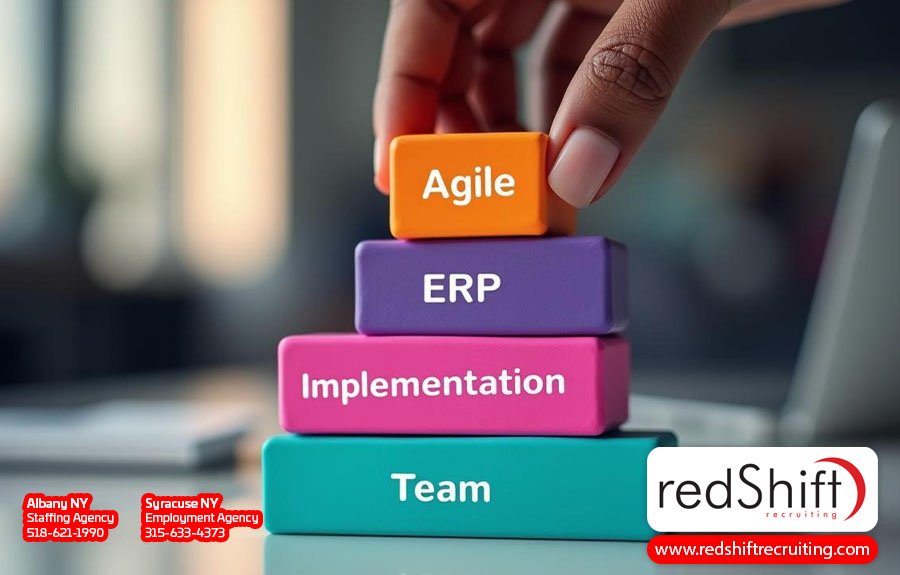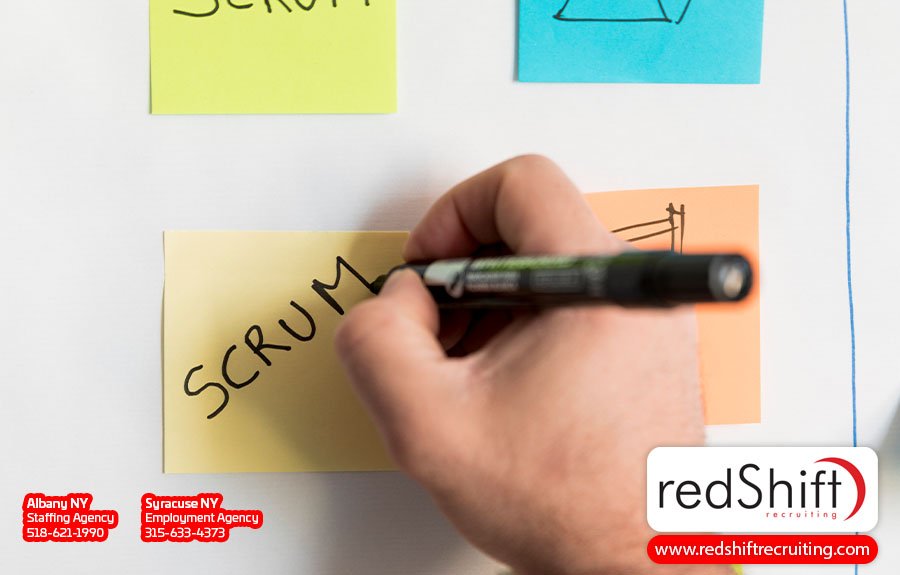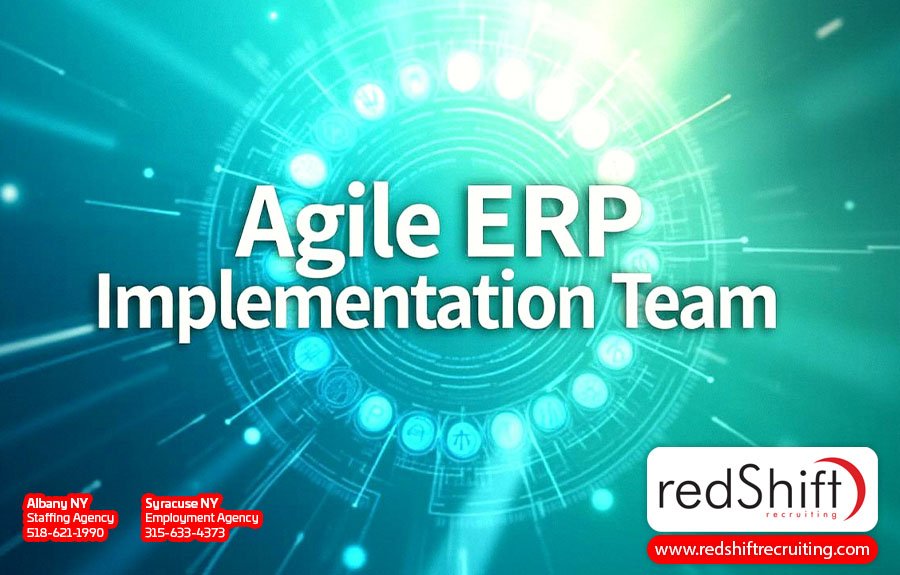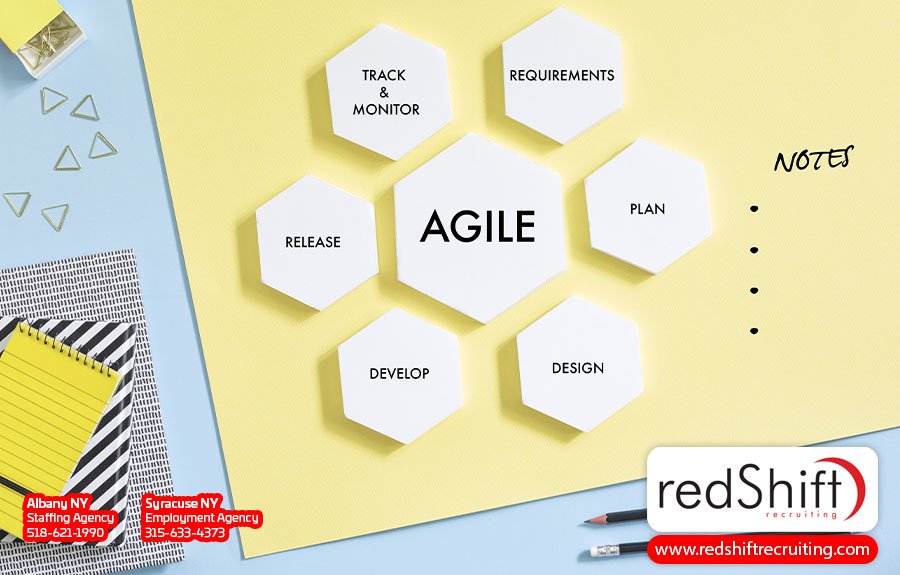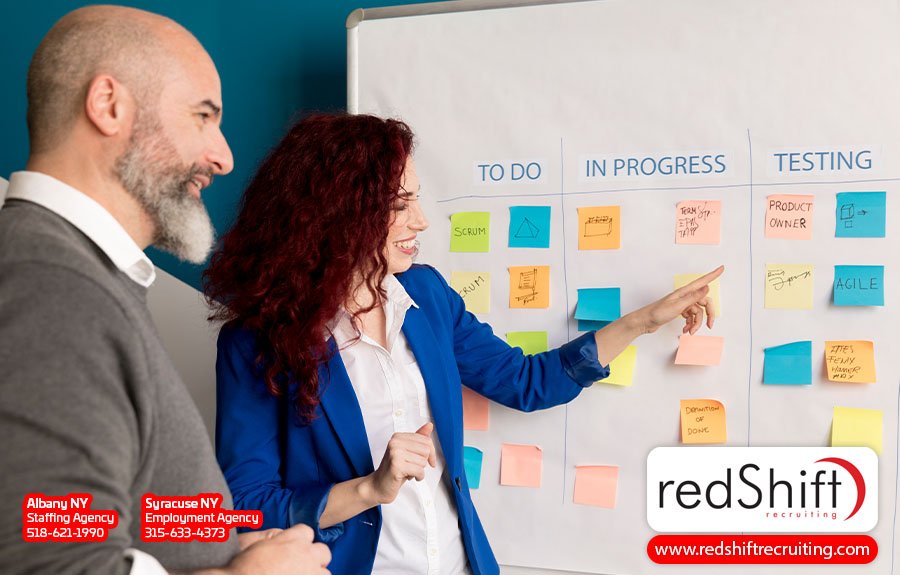How to Build an Agile ERP Implementation Team: Roles and Responsibilities
Building and implementing an Enterprise Resource Planning (ERP) system is a monumental task, fraught with potential stumbling blocks that range from inadequate planning to insufficient user adoption. Traditional implementation methodologies, such as the Waterfall approach, can sometimes struggle to address the complexities and dynamic needs of modern organizations, making Agile methodologies, with their emphasis on iterative development, collaboration, and flexibility, a compelling alternative in many cases. By adopting Agile principles, businesses can not only mitigate risks and adapt to changes but also foster greater collaboration and alignment between technical teams and business stakeholders, leading to faster and more impactful ERP project outcomes.
A successful ERP implementation project hinges on a cohesive and skilled team with clearly defined roles and responsibilities. The following sections will discuss the common job titles within an Agile ERP implementation team, offering the key insights you need to understand how to build an Agile ERP implementation team that supports long-term project success.
Understanding the Agile Approach to ERP Implementation
Agile methodologies prioritize adaptability, collaboration, and continuous improvement, with core principles including iterative development, frequent feedback loops, and flexibility in addressing changing requirements. Unlike the linear Waterfall methodology, which follows a rigid sequence of predefined steps, Agile ERP implementations rely on incremental progress. Teams deliver working components in "sprints" (short, focused work cycles typically lasting two to four weeks), allowing for early issue identification and greater flexibility. Agile also emphasizes continuous feedback, cross-functional collaboration between business and technical teams, and risk mitigation to reduce the impact of potential problems.
Different Agile frameworks, such as Scrum and Kanban, cater to various project needs; Scrum emphasizes structured roles and sprints, while Kanban focuses on improving workflow and visualizing tasks with an emphasis on limiting Work in Progress (WIP). Additionally, frameworks like SAFe (Scaled Agile Framework) or Nexus support scaling Agile for larger ERP projects involving multiple teams. Many teams adopt the Scrum framework, a structured Agile methodology that organizes work into sprints and defines key roles to enhance collaboration and efficiency. Scrum’s adaptability, through its iterative nature, frequent feedback loops, and ability to re-prioritize the product backlog, is particularly valuable for addressing ERP-specific challenges, such as shifting regulatory requirements and complex business needs.
Key Advantages of Agile in ERP Projects
Some key advantages of using Agile practices in ERP projects include:
Reduced Risk: Frequent testing and early feedback mitigate costly errors.
Faster Time-to-Value: Incremental delivery of working components ensures business units can benefit from functional components earlier in the project lifecycle.
Improved User Adoption: Close collaboration with end users not only ensures the system aligns with business needs but also increases user buy-in and reduces resistance to change.
Enhanced Flexibility: Agile enables teams to respond to evolving business priorities.
Improved Collaboration: Agile fosters closer communication between technical teams and business stakeholders, ensuring alignment and clarity of objectives.
Key Roles and Responsibilities in an Agile ERP Implementation Team
A successful Agile ERP implementation requires a well-rounded team. While the following are core roles, in practice, and depending on team size and project needs, there can be some overlap and flexibility. For instance, Functional Consultants often assist with user training, while Technical Architects frequently provide guidance on data migration. Clearly defining primary responsibilities for each team member is crucial to maintaining efficiency and avoiding redundancies in an Agile ERP implementation.
Product Owner
The Product Owner owns and is responsible for defining and prioritizing the product backlog to keep the project focused on delivering meaningful results. They act as the key liaison between business stakeholders and the technical team, ensuring that organizational goals are aligned through close collaboration with senior management. With a deep understanding of current business processes, the Product Owner translates business needs into actionable user stories that guide development. Their role also involves gathering and integrating user feedback, balancing competing stakeholder expectations, and maintaining a strategic vision for the ERP system.
The Product Owner works closely with the Scrum Master to ensure the team’s focus on backlog priorities and collaborates with Functional Consultants to align system configurations with business goals. Exceptional communication, negotiation, and prioritization skills enable them to make critical decisions that drive both the short-term and long-term success of the project.
Scrum Master
Scrum is one of the most widely used Agile frameworks, known for its structured, time-boxed approach to iterative development and clearly defined roles. A Scrum Master plays a pivotal role in the success of this methodology, acting as a servant leader and ensuring the ERP implementation team fully embraces Agile principles and works efficiently toward project goals. As experts in Agile processes, they lead Scrum events, such as sprint planning, daily scrums (stand-ups,), sprint reviews, and retrospectives, while tracking implementation progress and removing obstacles that might slow the process.
Acting as a champion of agile development, the Scrum Master coaches the team on Agile principles and practices, collaborates within cross-functional teams, and fosters a positive, productive atmosphere to keep team members engaged. This includes facilitating collaboration with the Product Owner to align team priorities and with the Technical Architect to address technical challenges that could affect the sprint. They ensure the team adapts Agile practices to meet the unique demands of the project, all while serving as a bridge between the team and external stakeholders to maintain transparency. With strong technical skills and a focus on coaching, they address conflicts and keep the team on track to deliver a successful outcome.
ERP Technical Architect
The ERP Technical Architect plays a central role in the success of an ERP solution, focusing on designing a scalable and efficient system architecture. They collaborate closely with the external vendor or implementation partner, overseeing technical development to ensure the architectural vision is implemented correctly and the new system integrates smoothly with existing infrastructure, meeting both current operational needs and long-term growth objectives. They often define technical standards and best practices for the project.
The ERP Technical Architect works closely with the Data Migration Specialist to ensure the system architecture supports seamless data transfer and collaborates with Functional Consultants to align technical designs with business requirements. They also collaborate with developers, security specialists, and infrastructure engineers to ensure the system is built and deployed effectively. By proactively identifying and addressing risks in the system’s design, they prevent costly issues and create a robust foundation for future adaptability. This position requires deep technical expertise, including knowledge of ERP systems, technical architecture, and integration technologies, to ensure operational efficiency and alignment with strategic goals.
ERP Functional Consultants
ERP Functional Consultants are responsible for tailoring the ERP system to meet the unique needs of the organization, focusing on areas such as Human Resources (HR), finance, and supply chain. They work closely with stakeholders to ensure the new ERP software supports business goals in these specific areas while streamlining workflows and improving efficiency. These consultants rely on their business process expertise to identify inefficiencies, recommend process improvements, and configure the ERP system based on business requirements and in alignment with the Technical Architect's design, ensuring seamless integration with existing operations. They also develop test scripts, participate in testing, and create user documentation.
ERP Functional Consultants collaborate with the Change Management Specialist to ensure system training aligns with user needs, often providing technical insights to support effective training delivery. They may also conduct user training or development training materials. Additionally, they work with the Product Owner to ensure configurations reflect prioritized business requirements. By validating configurations through rigorous testing and maintaining a strong emphasis on data accuracy, they ensure the system delivers sustainable value and operational excellence for the business.
Developers/Programmers
Developers/Programmers play a key role in ensuring the successful implementation of the new ERP system by developing customizations, writing code, and performing unit testing to ensure quality and reliability. They also participate in code reviews to ensure code quality and adherence to best practices. They collaborate with the ERP Technical Architect to ensure their work aligns with the system’s overall design and functionality and partner with Testers/QA Specialists to identify and resolve issues during unit testing, integration testing, and system testing. They may also contribute to technical documentation for the system. These team members work closely with software vendors to troubleshoot technical issues and ensure compatibility with existing systems. As part of the collaborative process, they partner with Functional Consultants to translate business requirements into effective technical solutions.
This role requires strong programming skills and a deep understanding of ERP system architecture to develop effective and scalable solutions. By leveraging their expertise, documenting their code, and working iteratively, Developers/Programmers contribute to the organization’s broader digital transformation goals while maintaining the flexibility to adapt to changing project requirements.
Data Migration Specialist
The Data Migration Specialist is responsible for defining the data migration strategy and planning and executing the migration from legacy systems to the new ERP system, ensuring high levels of data quality and accuracy throughout the process. They use advanced data migration tools and apply cleansing and transformation techniques, such as data profiling, data mapping, data scrubbing, and data validation, to prepare data for seamless integration. Data migration often occurs iteratively, identifying and resolving issues early in alignment with Agile principles. During the go-live phase, they verify data integrity using various methods, which may include near real-time checks, to minimize disruptions.
This role requires close collaboration with the ERP Technical Architect to align migration efforts with the system's architecture, with Functional Consultants to ensure the migrated data supports business processes effectively, and with the Change Management Specialist to make sure training materials reflect accurate data. By addressing unexpected challenges and maintaining focus on quality, Data Migration Specialists play a critical role in ensuring a smooth and successful transition to the new system.
Testers/QA Specialists
Testers/QA Specialists ensure the ERP system meets the highest quality standards by developing and executing test plans (including automated test scripts), identifying bugs, and validating system functionality. They apply a range of testing methodologies and test automation tools to simulate real-world scenarios and validate the ERP system’s performance in daily operations. Testers work closely with Developers/Programmers to resolve defects and integrate customizations smoothly, as well as Functional Consultants and the ERP Technical Architect to ensure configurations and technical designs align with the organization's operations. They may also contribute to user training materials or participate in user training sessions. As part of a collaborative process, they foster alignment across the entire team by identifying issues early and providing actionable feedback.
Testers play a critical role during the go-live phase, validating final configurations and ensuring the system operates as expected. Additionally, they maintain detailed documentation of test results, supporting the organization's ongoing support strategy and long-term success. This role requires excellent attention to detail, strong analytical skills, effective communication, and proficiency in modern testing tools to ensure project success.
Additional Roles
Depending on the project's complexity, company size, and user adoption challenges, some businesses may include Business Analysts and Change Management Specialists as part of their Agile ERP implementation team. These professionals can help improve efficiency, strengthen communication, and support a smoother transition to the new system by addressing specific needs that other team members may not fully cover.
Business Analysts
Business Analysts elicit and document requirements, translating business needs into clear and detailed specifications (also called user stories) that describe how the system should work for users and align with the Product Owner’s priorities. Their expertise in business process analysis allows them to identify opportunities for process improvements that support desired outcomes and reduce operational costs. They collaborate closely with the Product Owner to refine the product backlog, work with Functional Consultants to ensure the ERP system is configured to meet business needs, and partner with Testers/QA Specialists to confirm requirements are met during development. They may also model current and future state business processes to facilitate understanding and communication
Business Analysts ensure that user stories address end-user needs to improve adoption rates and overall satisfaction while aligning diverse stakeholders by gathering input and balancing competing priorities to maintain the project's focus. In many ERP projects, their role overlaps with the Product Owner in managing business requirements, particularly in larger or more complex implementations. However, Business Analysts provide more detailed documentation and analysis, often focusing on specific functional areas to promote clarity and collaboration across the entire team. Strong communication skills are essential for this role, as they act as a bridge between technical and non-technical stakeholders to ensure they are aligned.
Change Management Specialist
The Change Management Specialist is responsible for the successful adoption of the new ERP system. They assess the impact of change on different user groups and develop and implement change management strategies that support user adoption, including communication plans and comprehensive training programs. By collaborating with Functional Consultants and Business Analysts, they ensure training resources align with business operations and reflect accurate configurations and processes. Change Management Specialists also work closely with the Product Owner to address user feedback and refine strategies as needed. Additionally, they engage senior leadership and key stakeholders to reinforce the importance of adoption and align expectations throughout the implementation process.
Their role can overlap with Functional Consultants when delivering user training, as they focus on the people side of change while ensuring users can effectively navigate the system. They also develop strategies to address resistance to change and build user buy-in, track adoption metrics, and collect user feedback to measure success and continuously improve engagement efforts. Strong change management expertise and communication skills enable them to promote engagement and minimize resistance, supporting a smooth transition to the new system and providing ongoing support for users. Even after implementation, they refine training resources and assist in continuous improvement efforts to enhance use of the system, continuing to track user adoption metrics and gather feedback to identify areas for improvement.
The Benefits of Using a Staffing Agency for ERP Team Building
Building an effective Agile ERP implementation team is critical to the success of any ERP implementation process, but it requires hiring the right people for each job. By tapping into the agency's network and their expertise in talent sourcing, you quickly have access to candidates with the specific skills and experience needed for your ERP implementation. This targeted approach reduces hiring time and costs, allowing you to focus on the project at hand while reducing the risk of skill gaps or resource shortages that can cause your project to fail.
Staffing agencies also offer the advantage of flexibility and scalability through temporary, contract, and temp-to-hire employees. As your project progresses, you can easily adjust the size and composition of your project team to meet changing requirements while gaining time to assess candidates' technical skills and cultural fit before offering a permanent position. This agility ensures that you have the right resources in place at each stage of the ERP implementation process while allowing you to manage your project budget effectively by scaling your team up or down as needed. By handling additional hiring expenses such as candidate assessments, onboarding, and payroll, temporary and contract agencies further reduce hiring risks and costs. Additionally, partnering with a staffing agency helps mitigate hiring risks through thorough background checks and candidate vetting, allowing you to be confident in the reliability and competence of your hires.
Specialized IT and ERP staffing agencies bring industry-specific knowledge and deep talent networks, ensuring companies secure professionals with relevant experience. They also understand the nuances of the ERP market, including specific platform expertise and implementation methodologies, which helps them find the right fit for your project. This strategic approach enhances efficiency, minimizes delays, and supports a smooth ERP implementation process. By working with a staffing agency, organizations can strengthen their Agile ERP implementation team, optimize project timelines, and improve overall ERP success.
Frequently Asked Questions
What Are the Key Traits of a High-Performing Agile ERP Implementation Team?
A high-performing Agile ERP implementation team is adaptable, collaborative, and results-driven, with a shared understanding of the project vision. Strong communication skills, cross-functional expertise, and a focus on continuous improvement are essential. Teams that embrace iterative development and feedback loops tend to deliver more effective ERP solutions. Additionally, clear role definitions and stakeholder alignment help prevent bottlenecks and ensure smooth project execution. Selecting team members with both technical and business process knowledge further improves the chances of overall project success.
What Are the Best Tools and Technologies for Supporting an Agile ERP Implementation Team?
Collaboration tools like Slack and Microsoft Teams help Agile ERP teams stay connected and track progress, while project management platforms such as Asana and Monday.com facilitate sprint planning and backlog management. Jira is a popular tool often used for software development projects, including ERP customizations, to track issues and manage workflows. Testing tools like Selenium or TestComplete streamline quality assurance processes, and cloud-based ERP sandboxes allow for rapid prototyping and real-time feedback. Version control systems (e.g., Git) are also essential for managing code changes and collaborating on development efforts. The best tools depend on the team's workflow and the complexity of the ERP implementation.
What Are Some Common Challenges Faced During Agile ERP Implementation?
Common challenges include resistance to change, unclear or changing requirements, difficulty maintaining stakeholder alignment, integration complexities with legacy systems, data migration challenges, and a lack of skilled Agile resources. To overcome these, teams should prioritize transparency through regular communication and reporting, user engagement through training and feedback sessions, and continuous feedback loops through sprint reviews and retrospectives. They should also establish clear escalation paths for resolving issues and have a thorough risk management plan in place. Investing in strong change management strategies can improve user adoption and minimize disruptions, while collaboration between business and technical teams is key to overcoming integration and data migration hurdles. Regular sprint reviews and retrospectives also help address shifting priorities while keeping the project on track.
What Should Companies Look for When Choosing a Staffing Agency for ERP Implementation?
Companies should prioritize staffing agencies with experience in ERP implementations and a deep talent network in both technical and functional roles. Agencies should offer flexible hiring models, such as contract, contract-to-hire, or direct placement, to fit project needs and should have a proven track record of successful placements. Look for agencies that conduct thorough candidate screening, including ERP-specific assessments, and have a deep understanding of the ERP market, including different platforms, technologies, and implementation methodologies. A strong staffing partner should also provide insights into market trends and salary benchmarks. Choosing a firm that understands Agile methodologies can further streamline the hiring process.
How Can Companies Measure the Effectiveness of an Agile ERP Implementation Team?
Success can be measured using key performance indicators (KPIs) such as project completion timelines, system adoption rates, business process improvement metrics, ROI, and user satisfaction scores. Tracking backlog velocity and defect resolution times can help assess team efficiency, along with sprint goal completion rate. Regular stakeholder feedback and post-implementation reviews provide qualitative insights into overall team performance, while comparing planned vs. actual business process improvements can indicate whether the ERP implementation is delivering value. Continuous monitoring and adjustments ensure the ERP system is successful in the long term.
Conclusion
A well-structured Agile ERP implementation team is indispensable to a smooth ERP implementation process. By defining key roles and responsibilities within your team, you establish clear communication channels and accountability. Every team member, from product owners to data migration specialists, plays a crucial role in driving the implementation forward, and having the right expertise can make the difference between success and failure. Partnering with an experienced staffing agency streamlines the hiring process, providing flexibility and specialized talent while reducing the recruitment burden on your team and mitigating the risk of hiring unqualified candidates. Whether you’re building a project team from the ground up or enhancing your internal team, investing in the right people is key to a successful ERP implementation.
Article Author:
Ashley Meyer
Digital Marketing Strategist
Albany, NY

